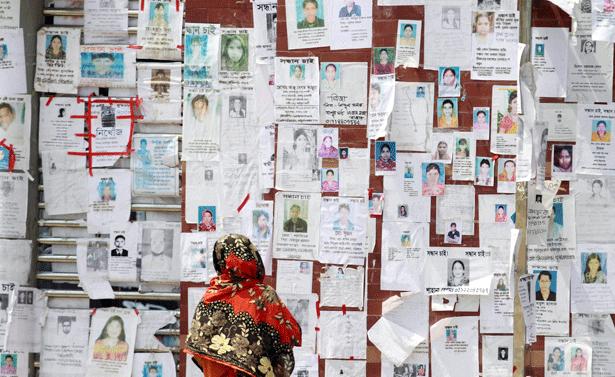
A recent disaster in Bangladesh has shed light on the destructive effects of international retail corporations in poor developing countries. Although you may have purchased your T-shirt for a bargain price, its true cost was the blood, sweat and tears of someone else.
On April 24, the Rana Plaza complex, an eight story garment factory in Bangladesh that produces clothes for stores like Primark, Mango and Wal-mart, fell to rubble. More than 1,038 workers died. Though an inspector had told the company to evacuate the building the previous day, managers urged workers to continue working.
Despite the destruction, Bangladeshi economist and diplomat Abul Maal Abdul Muhith said, “I don’t think it is really serious – it’s an accident.”
Yet working conditions in Bangladesh are horrible. To maximize profit and compete in the western market, Bangladesh garment factories pay workers, most of who are impoverished married women, shockingly low wages of $38 per month. And this is not the first time there has been an “accident.” According to the International Labor Rights Forum, 1,800 Bangladeshis have died in garment factory fires and building failures since 2005.
Many people who wear the manufactured clothing don’t know about these sad truths. Yet the scope of the collapse at Rana Plaza is evoking international criticism. Retail companies like Disney are pulling out of Bangladesh.
Who is to blame for the corruption? International companies, factory owners, or the consumers? Nobel Prize-winning economist Muhammad Yunus does not blame Bangladesh factory owners, but rather the whole nation for insufficient awareness and lack of representation of the workers.
“The tragedy at the garment factory in Savar is a symbol of our failure as a nation,” Yunus wrote in a May 12 editorial for the Guardian. “If we don’t face up to the cracks in our own systems, we as a nation will get lost in the debris.”
Indeed, it is the public’s obligation to be aware about the consequences of consumerism and to raise their voices about injustices in production before more disasters like the Rana collapse happen.
“It’s really sad, “ said Julia Kim, a sophomore at West Ranch High School, in an interview. “I got so excited over this shirt that I got for a good price, [yet someone suffered to make it], and I didn’t even know.”

